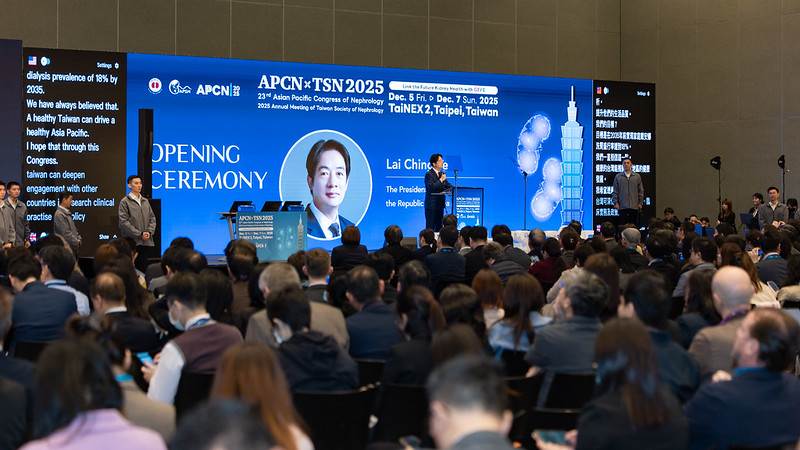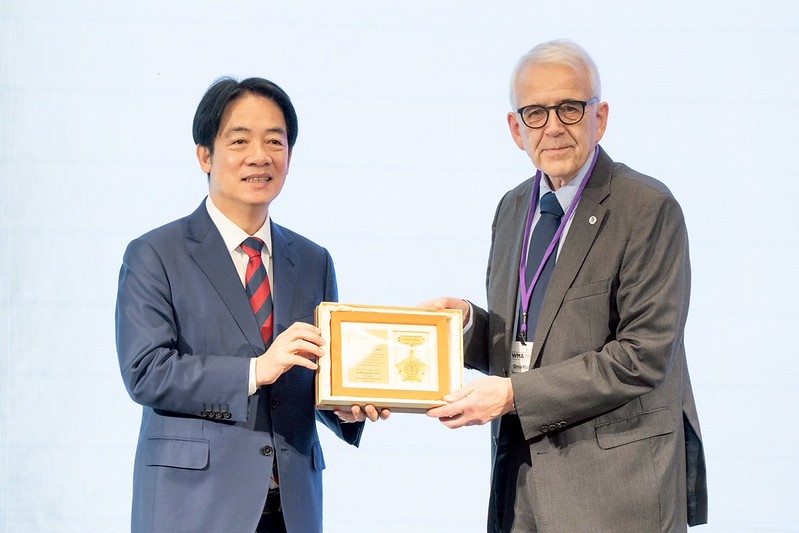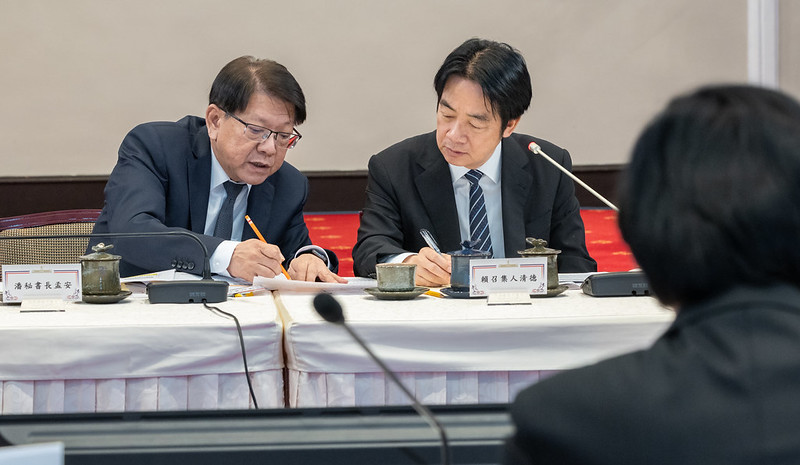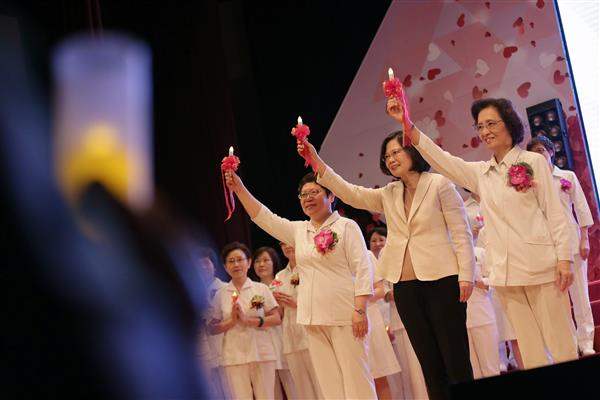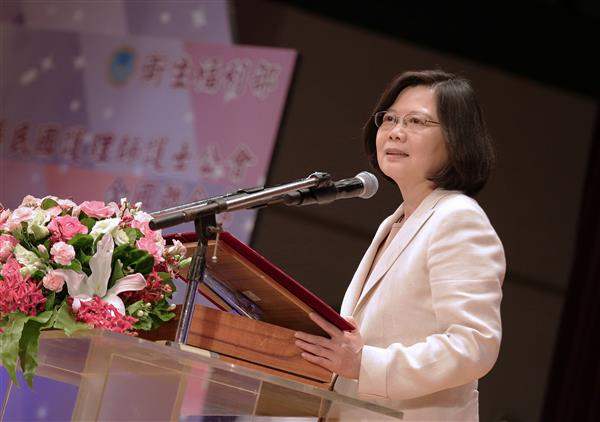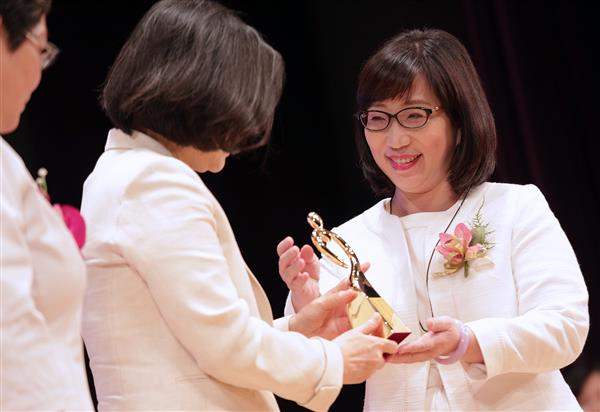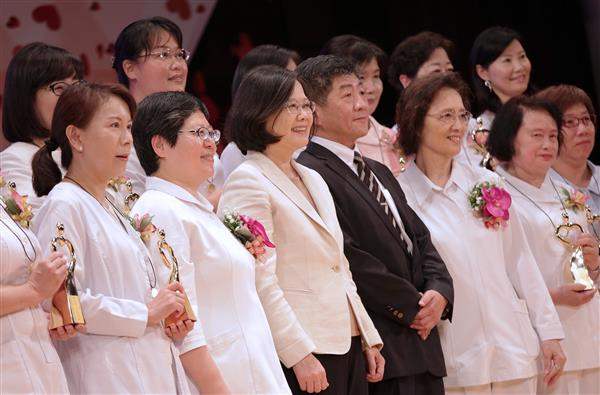News & activities
 News releases
News releases
While attending an event to celebrate International Nurses Day 2017 on the afternoon of May 12, President Tsai Ing-wen praised nurses for their contributions to the health of people in Taiwan, and stressed that the government has an unshirkable responsibility to increase the benefits available to nurses and improve staff scheduling to achieve more reasonable nurse-to-patient ratios and create friendlier workplaces.
After arriving at the venue, President Tsai took in a performance at the opening ceremony and conducted a "passing of the torch" ceremony together with President Kao Ching Chiu (高靖秋) of the Taiwan Union of Nurses Association and President Kwua-yun Wang (王桂芸) of the Taiwan Nurses Association.
In remarks, President Tsai expressed her deepest respect and gratitude to nurses throughout Taiwan, and congratulated the 16 persons selected to be recognized for their outstanding professionalism and service, as well as over 2,200 persons at the event who has been working as nurses for 25 years or more. "All of you," said the president, "are the most important guardians of health in Taiwan."
The president pointed out that the government realizes that making policy changes to give nurses maximum support is something that the government must do. The government has an unshirkable responsibility, she said, to increase the benefits available to nurses and improve staff scheduling to achieve more reasonable nurse-to-patient ratios and create friendlier workplaces.
President Tsai stated that with the launch of the Long-term Care 2.0 Plan, nurse training will no longer just be a question of whether there is sufficient manpower available; more importantly, we must pay due attention to the delivery of services, ensure fairness between urban and rural areas, and give more careful consideration to the needs of users. The Ministry of Health and Welfare has launched a program to multiply the number of community-based homecare clinics. The idea is to enable professionally trained nurses to establish homecare clinics in the very communities in which they reside. Having more choices, flexibility, and freedom, said the president, will encourage more people to enter the nursing profession.
The president pointed out that in addition to safeguarding the health of the people of Taiwan, another important goal of the government is to continue working to bring working environment for nurses in line with international standards. Taiwan has a long tradition of providing international medical aid and has made many international contributions in the field. In this regard, the participation of nurses is indispensable.
From the perspective of public health, said the president, international participation in the field of nursing is also very important. At the upcoming World Health Assembly, one of the key topics of discussion this year will be the issue of dementia as a public health priority. Many countries are now discussing such questions as how to extend the nursing profession into local communities and get it involved in the prevention of noncommunicable diseases. Taiwan is challenged by demographic ageing and needs to interact with other countries to share experience in nursing care and discuss the promotion of new policies.
President Tsai stressed that Taiwan is an integral part of the global health system, and should not be excluded for political reasons that everyone is all too familiar with. The nursing profession's concern for people's health is a shared value for all nations. In the future, we will continue voicing our views in international venues and share our experience with the rest of the world.
And finally, President Tsai mentioned that the theme of this year's International Nurses Day is "Nurses: A voice to lead." The contributions of nurses to health help the world move toward peace and sustainable development. The president encouraged nurses to make their voices heard, and to act together to promote progress in the nursing profession.
Among those attending the event were Control Yuan President Chang Po-ya (張博雅), Minister of Health and Welfare Chen Shih-chung (陳時中), and New Taipei City Mayor Eric Liluan Chu (朱立倫).
